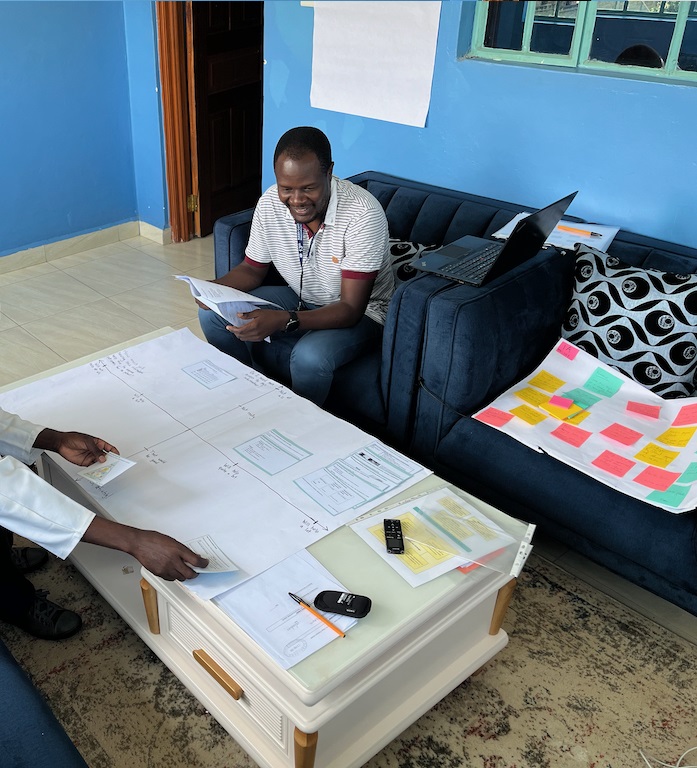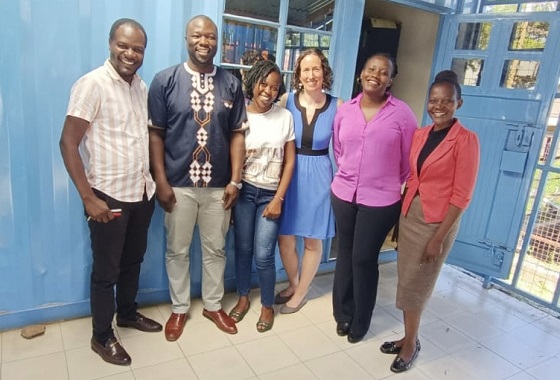June 9, 2023
TeAMS Toolkit Pilot Study aims to improve nutrition guidelines adherence for pediatric care in Kenya
Since its launch in Spring 2022, the Team Approach to Malnutrition Services (TeAMS) Toolkit pilot study, funded by a UW Population Health Initiative grant, is progressing towards its goals to support healthcare workers in Kenya improve adherence to guidelines to care for pediatric patients with common illness that contribute to childhood mortality, such as malnutrition, pneumonia, diarrhea, and HIV. Although these guidelines have been available for decades, adherence to them remains suboptimal. Healthcare workers face common challenges including supply shortages, high workload burdens, and infrequent reinforcement. Existing strategies to improve quality of hospital care for children often require large investments in training and resources, making them difficult to implement at the facility level. Feasible implementation strategies to support healthcare workers and improve adherence to guidelines in routine care settings are urgently needed.
The project leveraged qualitative findings from a different Global WACh study (PI: Arianna Rubin Means) that focused on deviations from pediatric guideline adherence in healthcare facilities in Kenya. In August 2022, TeAMS investigators held a workshop to identify a challenge from the data and brainstormed ideas to overcome the challenge, leading the group to select a strategy to pilot (based on the highest ranking of acceptability, feasibility, and potential for impact).
Challenge: Healthcare workers rely on nutritionists to handle many tasks related to nutrition. If the nutritionist is not available, this can delay guideline adherent care (especially at night/weekends).
Strategy: Develop a summary of key information from the Integrated Management of Acute Malnutrition (IMAM) national guidelines and merge with information from other guidelines. Gain consensus as a team for care to provide and include this in a standard operating procedure for management of children with malnutrition.
Following approval of the research protocol, TeAMS investigators hosted a protocol training for research staff members and began enrolling healthcare workers as study participants in April 2023. Eighteen participants have completed a survey to describe their training and experience providing care to children with malnutrition. A co-design process is now underway with the healthcare workers to develop the TeAMS Toolkit that will provide information, tools, and resources that they can use to facilitate adherence to nutrition care guidelines.

TeAMS Toolkit Study Coordinator Geoffrey listens to feedback from a participant during a design session.
The study team will conduct two more rounds of design session to refine the Toolkit, which will be launched to healthcare staff and piloted for 10 weeks. Following the pilot, surveys and qualitative interviews and focus group discussions will be used to evaluate the usability and feasibility of the Toolkit.
We look forward hearing future updates from the team.
